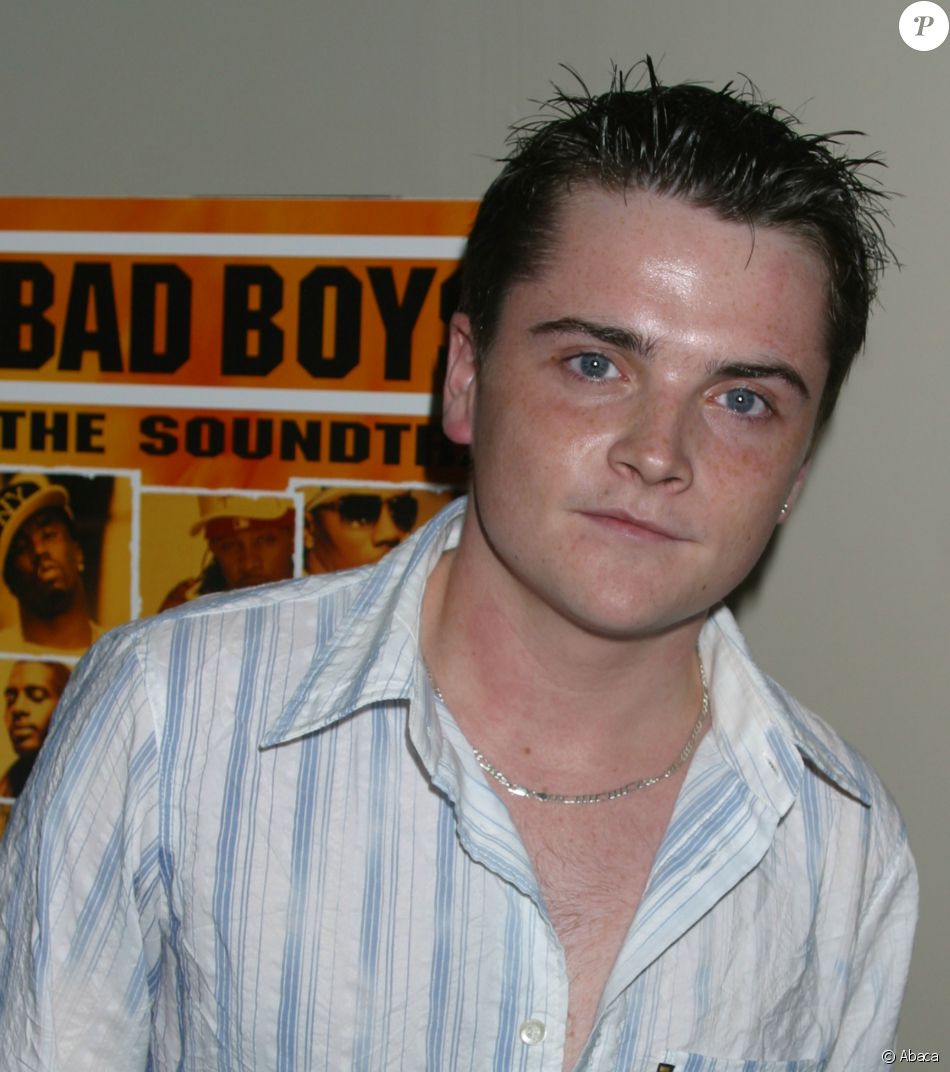What does it truly mean to grow up in the shadow of a criminal empire, navigating the treacherous waters of adolescence while grappling with the weight of family legacy? Anthony Soprano Jr., the son of the notorious mob boss Tony Soprano, embodies this complex reality, offering a compelling portrayal of youth in a world defined by violence, moral ambiguity, and the enduring search for identity. His journey, chronicled in the groundbreaking HBO series "The Sopranos," has captivated audiences and sparked countless discussions about family dynamics, mental health, and the far-reaching consequences of upbringing.
This exploration delves into the multifaceted life of Anthony Soprano Jr., dissecting his character development, examining his pivotal relationships, and uncovering the resonant themes that permeate the series. We will also illuminate the cultural significance of "The Sopranos," demonstrating how it mirrors the complexities of modern life. Join us as we journey into the depths of A.J.'s world and assess his impact on viewers and the television landscape.
From his early days in the affluent suburbs of North Caldwell, New Jersey, to the defining events that shaped him, Anthony Soprano Jr. presents a unique lens through which to understand the trials of youth in a world steeped in criminality. This examination seeks to comprehensively analyze his character, underlining the critical importance of understanding the psychological and social factors that shaped his decisions. Let us begin our immersive study of Anthony Soprano Jr.
- Donnie Wahlbergs Net Worth His Road To Millions
- Dominic Purcells Love Life A Look At His Relationships Journey
Table of Contents
- Biography of Anthony Soprano Jr.
- Early Life and Background
- Character Development
- Key Relationships
- Themes Explored
- Cultural Impact of "The Sopranos"
- Critical Reception and Legacy
Biography of Anthony Soprano Jr.
| Name | Anthony Soprano Jr. |
|---|---|
| Portrayed by | Robert Iler |
| Born | 1983 |
| Parents | Tony Soprano and Carmela Soprano |
| Siblings | Meadow Soprano |
Anthony Soprano Jr., often known by the nickname A.J., is the younger child of Tony and Carmela Soprano. These two are the central figures of the acclaimed HBO series "The Sopranos." As the story unfolds, we witness A.J.'s transformation from a relatively carefree teenager to a young adult who confronts issues of identity, mental health struggles, and the ramifications of his father's criminal lifestyle. His life is a study of privilege interwoven with the harsh realities of a world shrouded in darkness and moral uncertainty.
Early Life and Background
A.J. Soprano's early life was characterized by both affluence and the inescapable complexities of organized crime. Raised in a wealthy household in New Jersey, he was immersed in the duality of his father's existence: a life of luxury and another stained by violence and moral ambiguity. This environment was a crucial influence, shaping A.J.'s personality and his perceptions of the world. The opulence of his upbringing provided him with advantages and opportunities, but this was always shadowed by the threat of danger and the moral compromises inherent in his family's world.
Childhood Influences
A.J. enjoyed what appeared to be a typical childhood, benefiting from the best education and material comforts. However, he also faced immense pressure to uphold the Soprano name, a constant reminder of his family's criminal ties. The expectations placed on him by his father, combined with the omnipresent scrutiny of the mob world, created an inner conflict. This conflict, a silent battle, would eventually surface, becoming increasingly apparent as he grew older. The weight of the Soprano name and the unspoken demands of loyalty significantly influenced his development.
- Charles Pols Net Worth How He Made His Millions
- Max Gail Net Worth How Much Does The Barney Miller Star Earn
Adolescence and Struggles
As A.J. transitioned into his teenage years, he began to grapple with issues of identity. Unlike his sister Meadow, who exhibited ambition and drive, A.J. was often perceived as lacking direction and motivation. His search for his own path was made more difficult by his father's influence and the burden of family expectations. His attempts to forge his own identity were constantly challenged by the pervasive nature of his family's activities. This created a sense of internal struggle, leaving A.J. vulnerable to confusion and disappointment.
Character Development
A.J.'s character arc throughout the series is a testament to the challenges many adolescents face. Initially presented as a typical teenager, his experiences gradually unveil deeper complexities, including issues of depression and the search for meaning. The series delves into the nuances of his emotional development, capturing the essence of his personal evolution.
Struggles with Identity
A.J.'s journey is defined by his profound struggle with identity. He frequently battled feelings of inadequacy and a deep-seated fear of failing to meet his father's expectations. This internal conflict was exacerbated by his father's tumultuous life, leading A.J. to question the morality of the world around him. He grappled with defining himself against the backdrop of his father's criminal enterprise, often feeling lost in the shadow of the family's legacy.
Impact of Mental Health
One of the most poignant aspects of A.J.'s character is his ongoing struggle with mental health. "The Sopranos" confronts this reality head-on, exploring the detrimental impact of his upbringing on his psychological well-being. A.J.'s experiences include moments of profound depression, reflecting the wider theme of mental health that runs throughout the series. The show doesn't shy away from the internal battles he faces, representing the often-hidden emotional toll of his circumstances.
Relationships
Relationships are central to A.J.'s development as a character. His interactions with family, friends, and romantic interests shape his worldview and self-perception. These relationships act as both a source of support and a catalyst for internal conflict, further influencing his understanding of the world.
Father-Son Dynamics
The relationship between A.J. and Tony Soprano is a central element of the narrative. Tony's expectations, along with the weight of his criminal lifestyle, create tension while also forging moments of connection between father and son. A.J. often seeks approval from his father, while simultaneously rebelling against the values that define his father's world. The dynamic between them is complex, characterized by both love and profound differences, often leading to conflict and misunderstanding.
Sibling Dynamics
A.J.'s relationship with his sister Meadow offers a contrasting perspective. While Meadow is ambitious and driven, A.J. frequently feels overshadowed. Their sibling dynamic unveils A.J.'s insecurities and his longing for validation. This relationship provides insights into his emotional state and reveals the impact of family roles and expectations. Meadow's achievements and strong personality often cast a long shadow over A.J., leading him to question his own capabilities.
Themes Explored
"The Sopranos" is a rich tapestry of themes that resonate profoundly with viewers. A.J.'s character embodies many of these, including:
- Family Dynamics: The intricate nature of family relationships, particularly between parents and children, is explored through A.J.'s interactions with Tony and Carmela. His relationships reveal the complex interplay of love, duty, and dysfunction within the Soprano family.
- Moral Ambiguity: A.J. confronts the moral implications of his father's lifestyle and its impact on his personal choices. He grapples with difficult questions about right and wrong, navigating a world where the lines between them are constantly blurred.
- Mental Health: The series emphasizes the importance of mental health, particularly in relation to A.J.'s struggles. The exploration of his emotional state prompts discussions about the pressures of upbringing and the need for support.
Cultural Impact of "The Sopranos"
The cultural significance of "The Sopranos" reaches far beyond its storytelling, it has profoundly reshaped the television landscape and influenced the way mental health and family dynamics are depicted. A.J. Sopranos character serves as a crucial lens through which viewers examine the complexities of youth within a challenging environment. The shows realistic portrayal of a young man growing up in the shadow of organized crime offered a new level of complexity and depth for audiences.
The show's in-depth exploration of the psychological impact of organized crime captivates audiences and inspires discussions about the legacy of mob culture and its effects on families. A.J.'s struggles highlight the overlooked consequences of living in a crime-ridden environment, making his character relatable to numerous viewers, who navigate their own distinct challenges. His experiences expose the hidden costs of a life steeped in violence and deceit.
Critical Reception and Legacy
A.J. Soprano's character has received considerable attention from both critics and viewers. Robert Iler's performance as A.J. is frequently celebrated for its authenticity and depth. The character's development throughout the series reflects the broader themes of personal struggle and the search for identity, solidifying A.J.'s status as a memorable and relatable figure. His portrayal strikes a chord with audiences, as he embodies the complexities of youth and the challenges of self-discovery.
As the series concluded, A.J.'s journey resonated with viewers who had witnessed his personal growth and challenges. "The Sopranos" continues to influence contemporary television, and A.J.'s character remains an essential part of that influence. His legacy endures, as the series is still watched and discussed worldwide.
| Character | Anthony Soprano Jr. |
|---|---|
| Actor | Robert Iler |
| Show | The Sopranos |
| Role | Main Character |
| Character Arc | Struggles with identity, mental health challenges, search for purpose, development of maturity, moral growth. |
| Key Relationships | Tony Soprano (father), Carmela Soprano (mother), Meadow Soprano (sister), Friends, Romantic Interests |
| Notable Traits | Lackadaisical, intelligent, sensitive, vulnerable, rebellious, prone to depression. |
| Symbolism | Represents the innocence lost, the next generation, the consequences of the Soprano lifestyle, the impact of a troubled environment. |
| Impact on Viewers | Evokes empathy, provokes discussion about mental health, reflects the challenges of adolescence, encourages reevaluation of societal norms. |
| Cultural Significance | Redefined television storytelling, portrayed the complexities of mob life and family relationships, sparked conversations about mental health. |
| Legacy | Iconic character, continues to influence pop culture, resonates with audiences, study of generational trauma. |
| Reference | HBO's Official "The Sopranos" Website |
- Kodak Blacks Height How Tall Is He Career Insights
- Nan Harris The Inspiring Life Career You Need To Know


